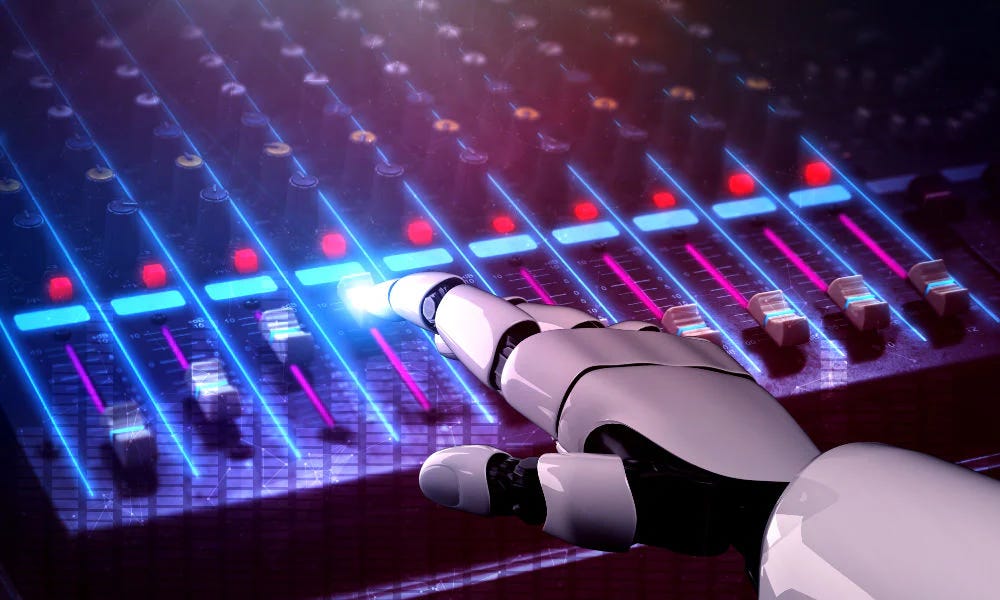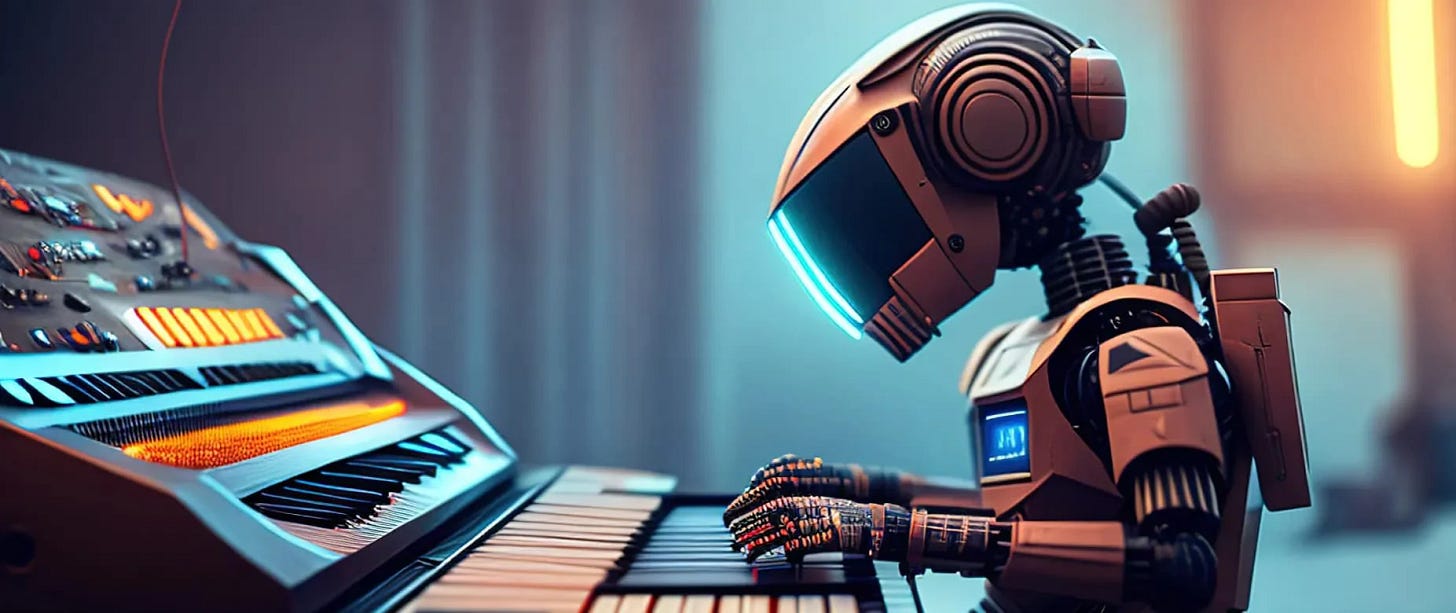Is AI a Revolution or a Threat to Artistic Integrity in Africa's Music Industry?
According to industry reports, around 20.3% of musicians worldwide have already used AI for composing, while 30.6% have incorporated it into mastering and mixing.
The integration of artificial intelligence (AI) into Africa's music industry has triggered conversations about the future of creativity, artistry, and cultural heritage. As AI systems take on increasingly sophisticated roles in music production, they are being hailed both as revolutionary tools and as potential threats to the authenticity of musical expression.
AI's Rise in African Music: A Game-Changer in the Studio
Historically, Africa's music production has drawn heavily on rich cultural traditions, oral histories, and live instrumentation. From local genres like Afrobeats, Highlife, and Gqom to Afro-fusion sounds that blend traditional rhythms with global trends, Africa's music has always been a deeply human and cultural endeavor. However, AI is shifting the paradigm in ways that are difficult to ignore.
Globally, AI has proven its ability to assist in music production, songwriting, and mastering. In April 2023, AI-driven music technology reached its peak interest worldwide, with many African producers experimenting with AI tools to streamline their creative processes. According to industry reports, around 20.3% of musicians worldwide have already used AI for composing, while 30.6% have incorporated it into mastering and mixing. In Africa, major cities like Lagos, Johannesburg, and Nairobi have seen a surge in tech startups developing AI-based music production tools.
A Collaborative Partner or a Composer Rival?
The potential of AI in African music production is undeniable. AI can analyze massive datasets, recognize patterns, and generate new musical compositions. Tools like Google's Magenta, which allows machines to generate original melodies, or IBM's Watson Beat, which assists in songwriting, are being leveraged to explore new sonic landscapes. For African producers, these tools can help create intricate and innovative musical arrangements faster than ever before.
Yet, the question remains: does AI complement the work of African music producers, or does it risk diluting the cultural essence that defines African music?
While some see AI as a collaborator that empowers artists to experiment with new sounds and compositions, others are concerned about its potential to overshadow human creativity. African music is deeply tied to cultural identity, emotion, and storytelling, aspects that AI systems—trained on vast datasets of existing music—struggle to replicate authentically.
Data: Adoption and Perception of AI in Music Production
A 2023 survey of music producers worldwide shows a growing acceptance of AI in the industry. However, the sentiment is split, with 40% of producers viewing AI positively, while 39% are more skeptical about its future role in music production. Africa mirrors these global trends, though its unique cultural and socio-economic context adds layers to the conversation.
African producers and artists may be intrigued by AI's efficiency and creative potential, but they also grapple with the fear that AI-generated music might commodify or misrepresent their culture. With the increasing globalization of African music, concerns about preserving the authenticity and richness of traditional sounds are ever-present.
Challenges to Artistic Integrity: Can AI Replicate Human Emotion?
One of the core debates in AI-driven music production revolves around emotion and authenticity. AI can generate melodies, harmonies, and even lyrics, but can it truly replicate the emotional depth and spontaneity that define African music? African genres like Afrobeat, Kwaito, and Amapiano are known for their ability to convey rich emotional narratives, often tied to the lived experiences of communities. AI, for all its computational power, may struggle to replicate this emotive layer that is integral to African music.
For example, the distinct fusion of joy, pain, and resistance found in South African jazz, or the vibrant storytelling of West African Highlife, is rooted in human experiences. AI’s ability to capture these subtleties remains limited, raising questions about whether it can truly stand as a co-creator alongside human artists.
The Future of AI in Africa’s Music: Embracing Innovation with Responsibility
Despite these challenges, many African producers are optimistic about AI’s potential to enhance creativity. AI can handle repetitive and technical aspects of music production—such as mastering, mixing, and pattern recognition—freeing artists to focus on the creative and emotional core of their work. For instance, AI-driven music platforms allow producers to generate beats and melodies in minutes, streamlining workflows in busy studios.
AI can also provide access to tools and resources that were previously out of reach for many African producers. The democratization of music production through AI technology could lead to a surge of innovation from emerging artists across the continent. By lowering the cost of high-quality music production, AI can enable a wider range of musicians to create and share their art.
However, as African producers continue to explore AI, it is crucial that they remain vigilant about its ethical and cultural implications. The music industry must ensure that AI tools are designed with cultural sensitivity in mind, acknowledging the diversity of African sounds and the need for fair representation in datasets used to train AI models.






